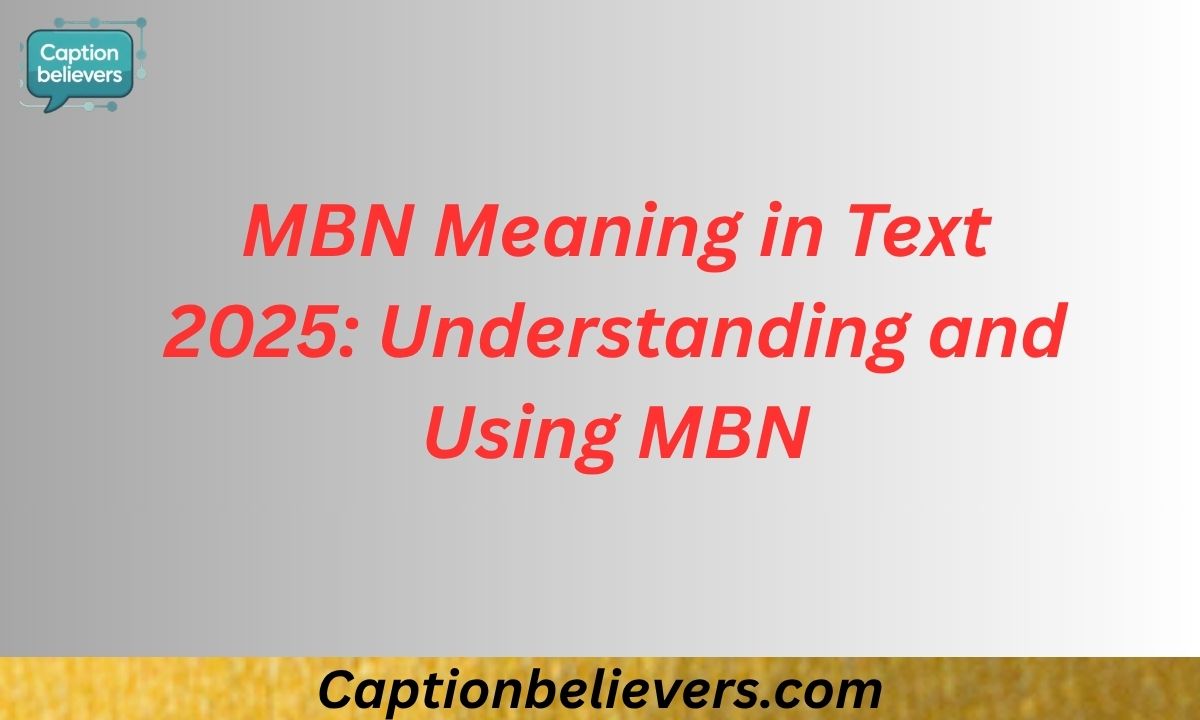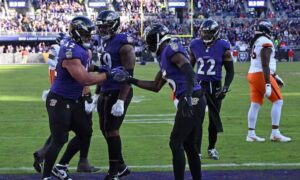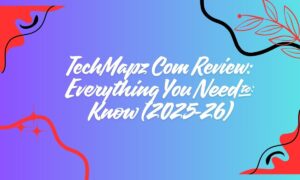Ever seen someone type “MBN” in a text or comment and wondered what it means? In 2025, slang evolves faster than ever, and MBN is one of those short acronyms that keeps popping up on social media, in DMs, and across online chats.
MBN stands for “Must Be Nice,” a phrase often used to express envy, sarcasm, or genuine admiration depending on context.
In this guide, we’ll break down the meaning of MBN in text, how it’s used in 2025 conversations, and what tone it usually carries when people drop it into a message.
What Does MBN Mean in Text?
MBN is an acronym that stands for “Must Be Nice.” It is commonly used in text messaging, social media, and online communication to express envy, sarcasm, or a lighthearted comment about someone else’s situation.
The phrase typically conveys a mix of emotions—ranging from genuine admiration to subtle jealousy or humor. When someone says “MBN,” they’re often commenting on something that seems desirable, luxurious, or fortunate that another person is experiencing.
MBN is most commonly used in informal digital communication among friends, colleagues, and online communities. It has become a staple of internet culture and texting slang.
Origin and Usage
The phrase “Must Be Nice” has been part of everyday English for decades, but its transformation into the acronym “MBN” is a relatively recent phenomenon tied to internet culture.
MBN gained traction in the early 2010s as texting and social media platforms encouraged shorter, faster communication. The acronym fits naturally into the digital landscape where brevity is valued.
Today, MBN is recognized across multiple platforms including Twitter, Instagram, TikTok, Facebook, and messaging apps. It has become part of the standard lexicon of digital natives and younger generations.
Understanding the Nuances of MBN
MBN can carry different meanings depending on context and tone. On the surface, it means “must be nice,” but the underlying emotion varies significantly.
- Genuine admiration: “You got promoted? MBN!” expresses sincere happiness for someone’s success.
- Sarcastic envy: “Your vacation looks amazing. MBN.” conveys a playful sense of jealousy.
- Lighthearted humor: “Having a day off? MBN.” uses humor to acknowledge someone’s good fortune without serious resentment.
Understanding these nuances helps you interpret and use MBN appropriately in different situations.
Tone and Context Matter
The effectiveness of using MBN depends heavily on the relationship you have with the recipient and the context of your message.
- Among close friends: MBN is generally understood as playful banter and is rarely taken seriously.
- In professional settings: Using MBN can come across as unprofessional or sarcastic in a negative way, so caution is advised.
- On social media: Context clues like emojis, follow-up messages, or your general online presence help clarify your intent.
- With strangers or acquaintances: MBN might be misinterpreted without proper context, so consider alternative phrases.
Polite and Professional Alternatives to MBN
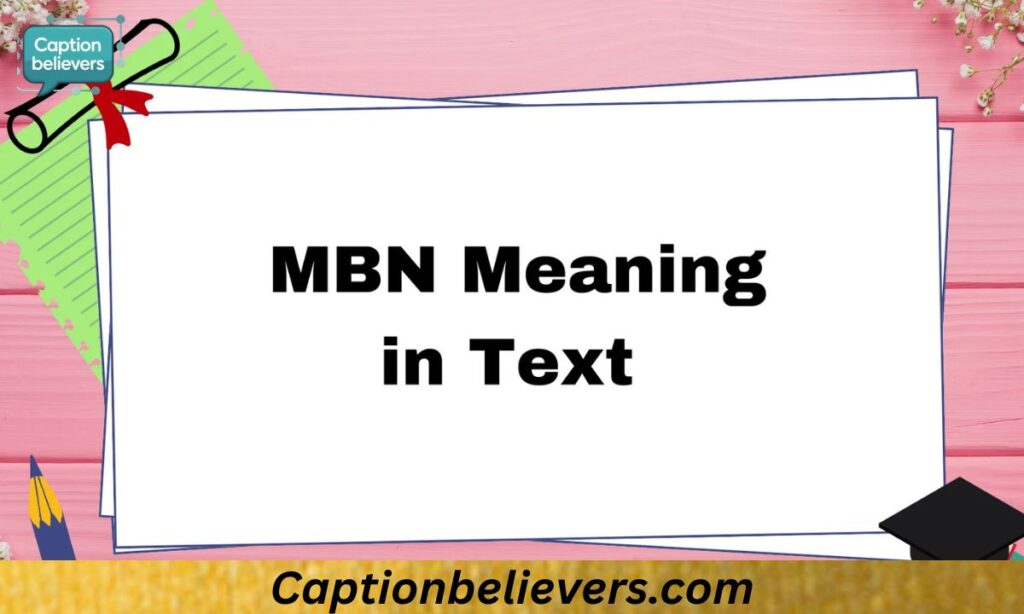
When you need to express admiration or acknowledge someone’s good fortune in a more formal setting, consider these alternatives:
- “That sounds wonderful!” conveys genuine happiness without sarcasm. “How exciting for you!” expresses enthusiasm and support.
- “Good for you!” acknowledges their success positively. “I’m happy for you.” is direct and sincere.
- “That’s impressive!” shows admiration for their achievement. “You’re fortunate!” is neutral and respectful.
- “What a great opportunity!” focuses on the positive aspect. “Congratulations!” is appropriate for major accomplishments.
These alternatives maintain professionalism while still acknowledging someone’s good situation.
Casual and Friendly Alternatives to MBN
When texting with friends and in casual contexts, these alternatives work well while maintaining friendliness:
- “That’s awesome!” shows enthusiasm without sarcasm. “Lucky you!” is playfully envious in a lighthearted way.
- “I wish!” expresses friendly jealousy about their situation. “No fair!” is humorous and teasing.
- “You’re living the dream!” is sarcastic but affectionate. “Wish I was there!” conveys playful longing.
- “That’s so cool!” shows genuine interest and positivity. “Go you!” celebrates their good fortune with energy.
These phrases maintain the casual tone of friendship while being more explicit than an acronym.
Eleven Examples of MBN and Its Alternatives in Different Contexts
Example 1: Vacation Plans
MBN version: “Going to Hawaii? MBN!” Professional alternative: “That sounds like a wonderful vacation opportunity!” Casual alternative: “That’s so cool! Wish I was going too!”
Example 2: Career Advancement
MBN version: “You got the promotion? MBN.” Professional alternative: “Congratulations on your well-deserved promotion!” Casual alternative: “Dude, that’s awesome! You totally deserve it!”
Example 3: New Purchase
MBN version: “A new car? MBN!” Professional alternative: “What an exciting new acquisition!” Casual alternative: “Lucky! I wish I could afford that!”
Example 4: Time Off
MBN version: “Three-day weekend? MBN.” Professional alternative: “Enjoy your well-deserved break!” Casual alternative: “No fair! Have fun without me!”
Example 5: Relationship Milestone
MBN version: “Got engaged? MBN!” Professional alternative: “Congratulations on this wonderful milestone!” Casual alternative: “OMG, that’s amazing! I’m so happy for you!”
Example 6: Living Situation
MBN version: “Living on the beach? MBN.” Professional alternative: “What a beautiful location for your home!” Casual alternative: “That sounds incredible! Living the dream!”
Example 7: Educational Achievement
MBN version: “Graduated with honors? MBN.” Professional alternative: “Congratulations on your outstanding academic achievement!” Casual alternative: “That’s so cool! You’re such a smarty!”
Example 8: Travel Experience
MBN version: “Traveling to Europe? MBN!” Professional alternative: “What an enriching travel experience that will be!” Casual alternative: “Lucky duck! Send pics!”
Example 9: Fitness Goal
MBN version: “Six-pack abs? MBN.” Professional alternative: “Your dedication to fitness is admirable!” Casual alternative: “Wow, keep it up! Looking good!”
Example 10: Hobby or Skill
MBN version: “Learning to play guitar? MBN.” Professional alternative: “Developing new skills is a worthwhile pursuit!” Casual alternative: “That’s so cool! Teach me someday!”
Example 11: Life Event
MBN version: “Parents bought you a car? MBN.” Professional alternative: “That’s a generous and helpful gesture from your family!” Casual alternative: “Your parents are the best! So jealous!”
How to Choose the Best Alternative to MBN?
When deciding whether to use MBN or an alternative, ask yourself these questions:
Who is your audience?
If it’s close friends, MBN works fine. If it’s colleagues or authority figures, use a professional alternative.
What’s the context?
Casual social media posts allow for MBN, while formal emails require more polished language.
What emotion are you expressing?
Genuine happiness calls for sincere alternatives, while playful jealousy suits the casual tone of MBN.
Could this be misunderstood?
If there’s any doubt, choose clarity over brevity by using a full phrase.
What’s your relationship with the person?
The closer you are, the more comfortable informal language becomes.
Hiatus Meaning of MBN Meaning in Text
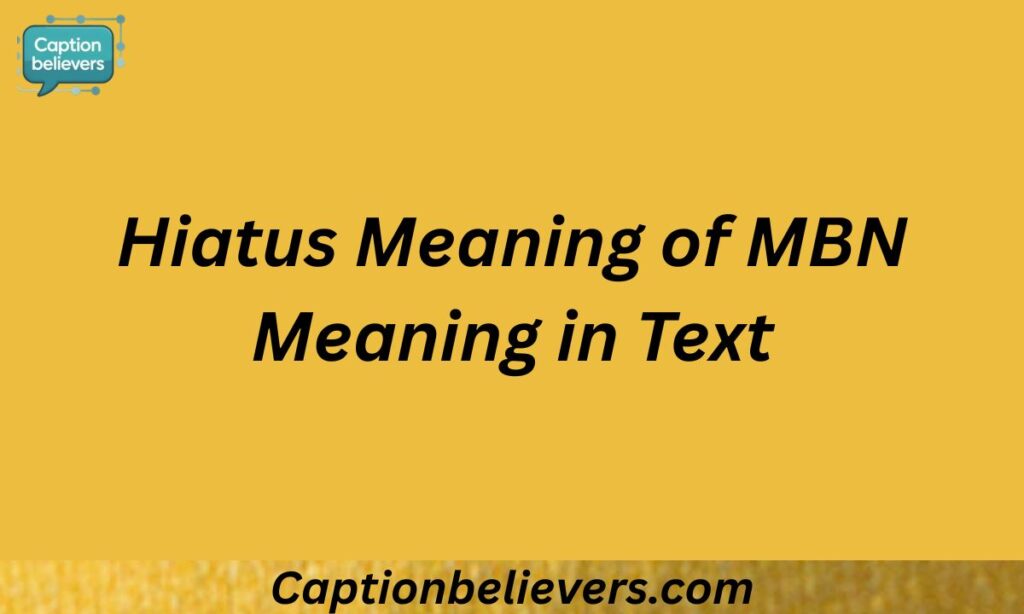
“Hiatus” refers to a pause, break, or temporary stop in activity or communication. When discussing “MBN meaning hiatus,” this typically refers to a period when MBN usage declined or paused.
For example, MBN usage might experience a hiatus during certain time periods when other slang terms become more popular. Digital trends often shift, and acronyms go through cycles of popularity and relative dormancy.
Understanding that language is dynamic helps you recognize that terms like MBN may experience periods of increased or decreased usage depending on cultural trends.
Why Is MBN Popular in Texting?
MBN has become popular for several important reasons in digital communication. First, it’s efficient—it conveys a complex emotion in just three letters, fitting perfectly into the fast-paced world of texting.
Second, MBN provides plausible deniability. The sender can claim they meant it as humor if the recipient takes offense, making it a safer way to express jealousy or sarcasm. This ambiguity is intentional and appeals to many texters.
Third, MBN is universally recognized within digital communities, creating a sense of belonging and shared understanding among users. It signals that you’re “in” on internet culture and speak the language of your generation.
Finally, MBN strikes a balance between expressing genuine emotions and maintaining a lighthearted tone, making it useful for navigating complex social dynamics online.
Potential Pitfalls of Using MBN
While MBN is generally harmless, there are situations where it can cause misunderstandings or offense.
- Tone miscommunication: Without vocal cues or facial expressions, sarcasm can be misinterpreted as genuine rudeness or jealousy.
- Professional inappropriateness: Using MBN in work emails or formal communications can undermine your credibility or professionalism.
- Relationship damage: If someone is sensitive or the context is unclear, MBN might be perceived as mean-spirited rather than playful.
- Cultural or generational gaps: Older generations or people unfamiliar with internet slang may not understand MBN and could be offended.
- Repeated use: Overusing MBN can make it seem like you’re genuinely jealous or negative, rather than humorous.
Being aware of these pitfalls helps you use MBN more thoughtfully and effectively.
Final Thoughts
Understanding MBN and knowing when to use it versus when to choose an alternative is an important skill in modern digital communication. The acronym represents a uniquely internet-age way of expressing complex emotions with brevity and humor.
Whether you choose to use MBN or opt for a more explicit alternative depends on your audience, context, and relationship with the recipient. The key is being intentional about your word choices and considering how your message might be received.
As digital communication continues to evolve, terms like MBN will likely remain part of our linguistic landscape, changing and adapting as new platforms and generations emerge. Understanding these nuances makes you a more effective communicator.
Frequently Asked Questions
Is it rude to use MBN?
MBN isn’t inherently rude, but it can come across as sarcastic or passive-aggressive depending on context and tone. Among friends, it’s usually understood as playful. In formal settings or with strangers, it might be misinterpreted.
Can I use MBN in professional emails?
Generally, no. Professional communication should be clear and direct. Using MBN could undermine your credibility or be misunderstood. Save it for casual personal messages.
What does MBN mean exactly?
MBN stands for “Must Be Nice.” It’s typically used when commenting on someone else’s fortunate situation, often with a mix of admiration and playful envy.
Is MBN still popular in 2025?
Yes, MBN remains a recognizable and commonly used acronym in texting and social media, though like all slang, its popularity fluctuates over time.
How can I tell if someone is being sarcastic when they say MBN?
Look for context clues like other messages, emojis, your relationship with the person, and the situation they’re commenting on. When in doubt, ask for clarification.
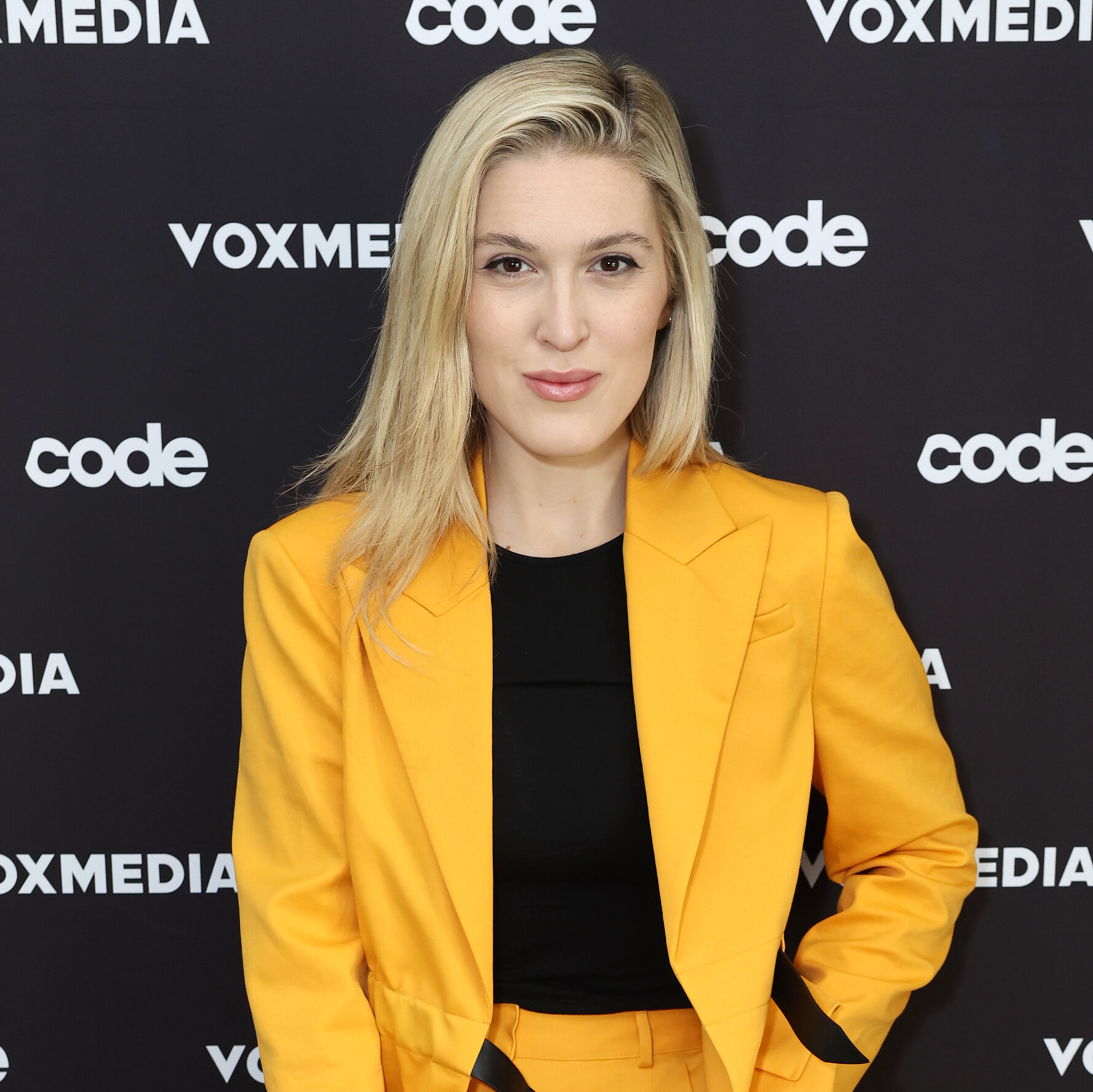
Scarlett created Caption Believers to inspire with meaningful captions, spiritual prayers, uplifting Bible verses, and heartfelt wishes for all who seek hope.
